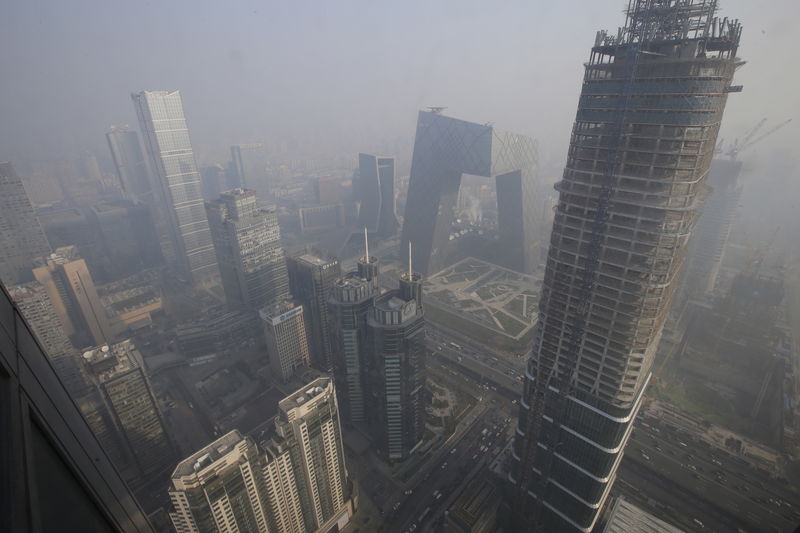(Bloomberg) -- Sunac China Holdings Ltd. raised $580 million in a top-up share sale, easing fears of a liquidity crisis that had sent the Chinese real estate giant’s dollar bonds tumbling to record lows on Wednesday.
The nation’s third-largest property developer by sales sold 452 million shares at HK$10 apiece, a 15% discount to Wednesday’s close, according to terms of the deal obtained by Bloomberg News. Shares of Sunac opened 15% lower in Hong Kong trading Thursday.
The placement comes just two months after Sunac raised about $953 million through the sale of new shares as well as a stake in its property management unit.
Sunac is among the largest Chinese developers racing to avert a cash crunch after a government crackdown all but closed off the industry’s access to the dollar-bond market, triggering a record surge in defaults and heightening concerns about a slowdown in Asia’s largest economy. Sunac is considered a higher-quality borrower among junk-rated developers by international credit risk assessors, with the equivalent of a BB rating.
Worries about the company’s financial health escalated this week after one of its units was hit by a court-ordered asset freeze. The developer told Bloomberg News on Wednesday that the issue with a business partner has been resolved and they are now working to withdraw the court orders.
Sunac’s statement helped ease what Bloomberg Intelligence analyst Daniel Fan described as “panic” selling by bondholders, which dragged prices on the developer’s 2024 notes to about 47 cents on the dollar at one point on Wednesday. The bonds rallied to about 50 cents by day’s end, according to data compiled by Bloomberg.
Sunac raised $2 billion late last year by selling office and hotel projects in Shanghai and Hangzhou, placing shares, borrowing from its controlling shareholder and selling the stake in its property management unit, according to Bloomberg Intelligence. The developer is exploring a sale of its culture and tourism business, people familiar with the matter said in November. It acquired the assets, which include hotels, resorts and amusement parks, over the past four years for about 65 billion yuan ($10 billion).
While China’s government has signaled a reluctance to abandon its clampdown on excessive borrowing by developers, regulators have been dialing back the intensity of restrictions in recent months as they try to prevent a liquidity crunch at weaker builders from destabilizing the financial system and economy. In window guidance issued last month, authorities told banks to step up lending to developers after at least two quarters of consecutive declines, according to people familiar with the matter.
(Updates with share trading in the second paragraph)
©2022 Bloomberg L.P.
